第17章 MORAL EFFECTS(3)
The Brothers of the Cross were not permitted to seek for free quarters, or even to enter a house without having been invited;they were forbidden to converse with females; and if they transgressed these rules, or acted without discretion, they were obliged to confess to the Superior, who sentenced them to several lashes of the scourge, by way of penance.Ecclesiastics had not, as such, any pre-eminence among them; according to their original law, which, however, was often transgressed, they could not become Masters, or take part in the Secret Councils.Penance was performed twice every day: in the morning and evening they went abroad in pairs, singing psalms amid the ringing of the bells; and when they arrived at the place of flagellation, they stripped the upper part of their bodies and put off their shoes, keeping on only a linen dress, reaching from the waist to the ankles.They then lay down in a large circle, in different positions, according to the nature of the crime: the adulterer with his face to the ground; the perjurer on one side, holding up three of his fingers, &c., and were then castigated, some more and some less, by the Master, who ordered them to rise in the words of a prescribed form.Upon this they scourged themselves, amid the singing of psalms and loud supplications for the averting of the plague, with genuflexions and other ceremonies, of which contemporary writers give various accounts; and at the same time constantly boasted of their penance, that the blood of their wounds was mingled with that of the Saviour.One of them, in conclusion, stoop up to read a letter, which it was pretended an angel had brought from heaven to St.Peter's Church, at Jerusalem, stating that Christ, who was sore displeased at the sins of man, had granted, at the intercession of the Holy Virgin and of the angels, that all who should wander about for thirty-four days and scourge themselves, should be partakers of the Divine grace.This scene caused as great a commotion among the believers as the finding of the holy spear once did at Antioch; and if any among the clergy inquired who had sealed the letter, he was boldly answered, the same who had sealed the Gospel!
All this had so powerful an effect, that the Church was in considerable danger; for the Flagellants gained more credit than the priests, from whom they so entirely withdrew themselves, that they even absolved each other.Besides, they everywhere took possession of the churches, and their new songs, which went from mouth to mouth, operated strongly on the minds of the people.
Great enthusiasm and originally pious feelings are clearly distinguishable in these hymns, and especially in the chief psalm of the Cross-bearers, which is still extant, and which was sung all over Germany in different dialects, and is probably of a more ancient date.Degeneracy, however, soon crept in; crimes were everywhere committed; and there was no energetic man capable of directing the individual excitement to purer objects, even had an effectual resistance to the tottering Church been at that early period seasonable, and had it been possible to restrain the fanaticism.The Flagellants sometimes undertook to make trial of their power of working miracles; as in Strasburg, where they attempted, in their own circle, to resuscitate a dead child:
they, however, failed, and their unskilfulness did them much harm, though they succeeded here and there in maintaining some confidence in their holy calling, by pretending to have the power of casting out evil spirits.
The Brotherhood of the Cross announced that the pilgrimage of the Flagellants was to continue for a space of thirty-four years; and many of the Masters had doubtless determined to form a lasting league against the Church; but they had gone too far.So early as the first year of their establishment, the general indignation set bounds to their intrigues: so that the strict measures adopted by the Emperor Charles IV., and Pope Clement, who, throughout the whole of this fearful period, manifested prudence and noble-mindedness, and conducted himself in a manner every way worthy of his high station, were easily put into execution.
The Sorbonne, at Paris, and the Emperor Charles, had already applied to the Holy See for assistance against these formidable and heretical excesses, which had well-nigh destroyed the influence of the clergy in every place; when a hundred of the Brotherhood of the Cross arrived at Avignon from Basle, and desired admission.The Pope, regardless of the intercession of several cardinals, interdicted their public penance, which he had not authorised; and, on pain of excommunication, prohibited throughout Christendom the continuance of these pilgrimages.
Philip VI., supported by the condemnatory judgment of the Sorbonne, forbade their reception in France.Manfred, King of Sicily, at the same time threatened them with punishment by death;and in the East they were withstood by several bishops, among whom was Janussius, of Gnesen, and Preczlaw, of Breslau, who condemned to death one of their Masters, formerly a deacon; and, in conformity with the barbarity of the times, had him publicly burnt.In Westphalia, where so shortly before they had venerated the Brothers of the Cross, they now persecuted them with relentless severity; and in the Mark, as well as in all the other countries of Germany, they pursued them as if they had been the authors of every misfortune.
The processions of the Brotherhood of the Cross undoubtedly promoted the spreading of the plague; and it is evident that the gloomy fanaticism which gave rise to them would infuse a new poison into the already desponding minds of the people.